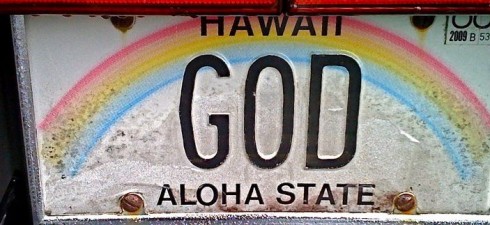In 2006, Elder Nelson spoke of his first wife saying, “When people have asked her how she managed with ten children with so little time available from her husband, she has responded with a twinkle in her eye, saying, “When I married him, I didn’t expect much, so I was never disappointed.”” When I first heard that quote years ago, I saw it as a sad reflection of a woman who had no dreams to live up to. Over time, I’ve grown to see the wisdom of her thinking — Sister Nelson describes life without clinging to a specific outcome (While also demonstrating the importance of a sharp sense of humor!) She naturally discovered a Buddhist teaching — clinging creates suffering, and embracing what is, is one of the main keys of real happiness.
Similarly, when I look at how many of my friends have eschewed formal religion, I wonder if perhaps we simply expect too much from it. Perhaps we expect our religion to stay in its original form without evolving over time. Maybe it’s the opposite, expecting that our religion will continue to evolve as we evolve. Perhaps we think the leaders of the church should be super-human and above fallibility. The list of possible expectations goes on, but whatever our expectations are, they most likely leave us feeling disillusioned at some point along our religious journey.
The first chapter of the Tao Te Ching begins with, “The tao that can be told is not the Tao.” In other words, the truth is too large to be contained by language. So God bless the many religions that have tried for centuries to do the impossible — to capture the esoteric, the mystical, and the uncontainable. They’ve attempted to decipher reality, name truth, organize it, direct it and to — in a sense — create a brand out of it. So we see over time that different religions essentially market themselves through the form of language. Each new language of truth saying, “Look how beautifully I roll my R’s, soften my D’s. See how I’ve combined beautiful words to express the Divine.” What an inclusive way to relate to this world, acknowledging that different people speak different languages, but we are all just attempting to communicate clearly. Some religious leaders and doctrines understand this. Yet, so often these religious languages draw us so intimately close to a real experience of the Divine, that we forget the wild and indefinable nature of god, and perceive the language of our choice as pure reality itself.
So when I ask myself, “What do I expect from the religion of my choice?”, it seems reasonable to put aside old expectations of religion and answer, “I expect that religious language to acknowledge and encompass the awareness that the tao that can be told is not the Tao.”
Is that asking too much? Probably. That may be why I’m not the only one lingering outside of the chapels, the synagogues, the temples. Maybe silence is our language. Maybe silence is as good of a start as any. Yet, in between playing with silence, I find myself still sitting here typing words and trying to learn new languages that draw me closer to god. So tonight I’m taking some help from my good friend Hafiz in a clumsy attempt to whisper one version of the Dao. That Hafiz, he has a beautiful accent.
;
WHAT THE HELL
The
Real love
I always keep a secret.
All my words
Are hung outside Her window,
For when She lets me in
I take a thousand oaths of silence.
But,
Then She says,
O, then God says,
“What the hell, Hafiz,
Why not give the whole world
My
Address.”
;
What are your expectations of religion?

As I went through the agonizing process of working through my own disappointments, hurts and expectations with my religion, I became very conscious of exactly this. It was both stabilizing — kept me from throwing the baby out with the bathwater — and also paralyzing — because I began to doubt my ability to find a religious language that would sit well with my heart and I was convinced that the problem was ultimately me. I stayed in that doubting place for a long time, somewhat believing that if I could only readjust my expectations, I could make any religion work. I had to go deeper, I had to let go of more expectations and realize that I had the power to choose the language (or silence) that seemed to best describe my experience, open my heart and point me in the right direction, even if it was never going to be perfect and “true” in the way I had grown up believing religion could be and even if I am still deluded. At least I know I’m deluded.
Laurie, amen to this. I read a multiple book review yesterday in the WSJ suggesting romantic love has replaced the preoccupation (ie, our clinging) in western society with God. Or, in other words, attachment to God was replaced with attachment to a human being, or, as you point out, clinging to preconceptions of fellow human beings. It’s the preconception that must be released, not the person.
And, I’m continually reminded that the metaphors of our religious imagination are beautiful in all their variety, but once viewed literally they become ugly in their exclusivity.
Do we expect too much? What a great question. I’m going to be thinking about that for a while.